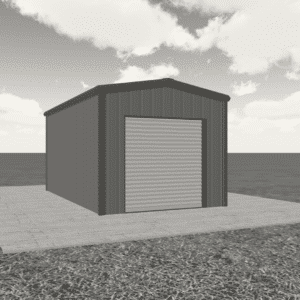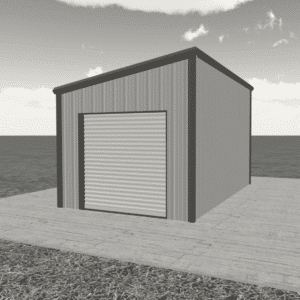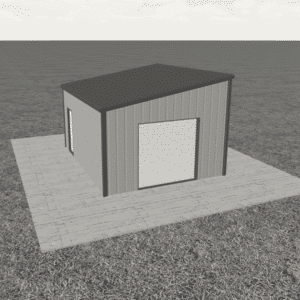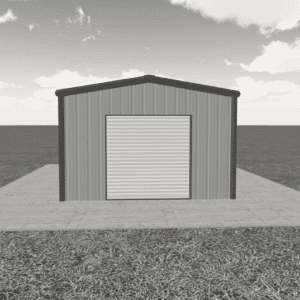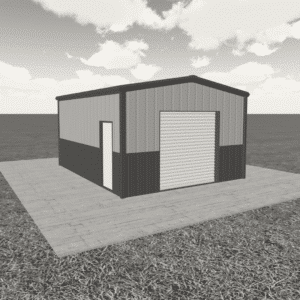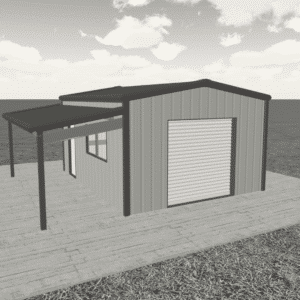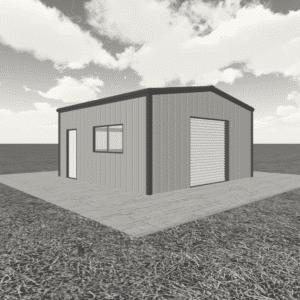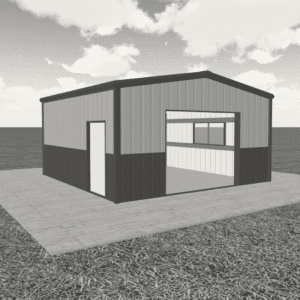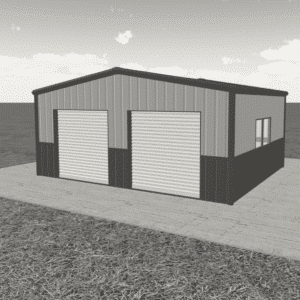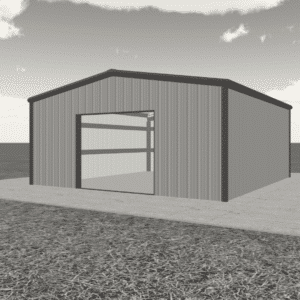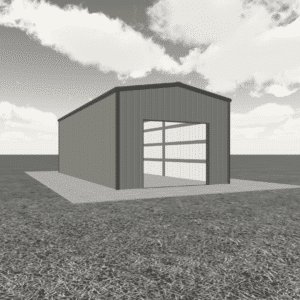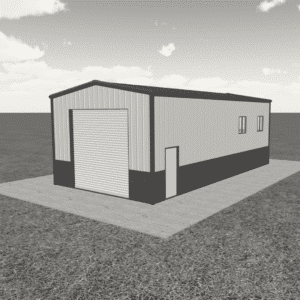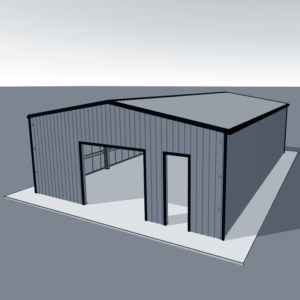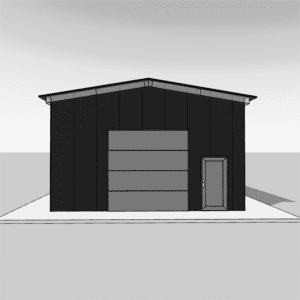-
12×20 Metal Building MB21212201000 Deposit
Rated 5.00 out of 5$4,500.00 Add to cart -
12×20 Metal Building MB212122010S0 Deposit
Rated 5.00 out of 5$4,500.00 Add to cart -
16×20 Metal Building MB212162010S0 Deposit
Rated 5.00 out of 5$5,200.00 Add to cart -
16×20 Metal Building MB21216201000 Deposit
Rated 5.00 out of 5$5,200.00 Add to cart -
16×20 Metal Building MB212162010W0 Deposit
Rated 5.00 out of 5$5,200.00 Add to cart -
16×20 Metal Building MB212162010LT Deposit
Rated 5.00 out of 5$8,000.00 Add to cart -
20×20 Metal Building MB21220201000 Deposit
Rated 5.00 out of 5$7,000.00 Add to cart -
20×20 Metal Building MB212202010W0 Deposit
Rated 5.00 out of 5$7,000.00 Add to cart -
20×24 Metal Building MB212202410W0 Deposit
$8,000.00 Add to cart -
24×24 Metal Building MB21224241000 Deposit
$8,000.00 Add to cart -
20×40 Metal Building MB21220401400 Deposit
Rated 5.00 out of 5$15,000.00 Add to cart -
20×40 Metal Building MB212204014W0 Deposit
$15,000.00 Add to cart
What Are Steel Buildings?
Steel buildings are structures made primarily from steel, renowned for their strength, durability, and versatility. These buildings are widely utilized in various sectors, including residential, commercial, industrial, and agricultural.
History of Steel Buildings
The use of steel in construction dates back to the 19th century, with the advent of the first steel-framed skyscrapers. Over time, steel has become a preferred material due to its unmatched strength and its ability to support large spans without requiring numerous support columns.
Importance of Steel in Modern Construction
Steel is a critical component in modern construction due to its strength, flexibility, and sustainability. It enables innovative architectural designs and allows the construction of large-scale projects that might not be feasible with other materials.
Types of Steel Buildings
Residential Steel Buildings
Steel is increasingly used in residential construction, offering a durable and modern alternative to traditional wood-framed homes. These buildings are resistant to pests and offer flexibility in design, making them a popular choice for contemporary housing.
Commercial Steel Buildings
In the commercial sector, metal buildings are common in retail spaces, office buildings, and multi-story structures. Their design flexibility allows for various architectural styles, making them suitable for a wide range of commercial applications.
Industrial Steel Buildings
Steel buildings are favored in the industrial sector for their ability to house large machinery, provide ample storage space, and support manufacturing processes. They offer the necessary strength and durability required for heavy-duty industrial use.
Agricultural Steel Buildings
In agriculture, steel structures are ideal for barns, storage facilities, and livestock shelters. Their durability and resistance to weather conditions make them a preferred choice in rural and agricultural settings.
Advantages of Steel Buildings
Durability and Strength
Steel is known for its high strength-to-weight ratio, making it one of the most durable building materials available. It can withstand extreme weather conditions and heavy loads, ensuring long-term structural integrity.
Cost-Effectiveness
Although the initial cost of steel buildings can be higher, the long-term savings through reduced maintenance and energy efficiency make them cost-effective over time. Choosing a steel building from a reputable provider like Your Building Team guarantees high-quality building kits that offer excellent value.
Flexibility in Design
Steel allows for expansive designs with minimal support structures, providing greater flexibility in architectural layout. This flexibility also enables quicker construction times due to the prefabrication of components.
Environmental Benefits
Steel is a recyclable material, significantly reducing the environmental impact of construction. Steel buildings can also be designed to meet high energy efficiency standards, contributing to sustainability goals.
Disadvantages of Steel Buildings
Initial Costs
The upfront costs of steel buildings can be higher compared to traditional building materials. This includes the cost of steel and the specialized labor required for assembly.
Thermal Conductivity Issues
Steel’s high thermal conductivity can make it challenging to maintain indoor temperatures, making proper insulation essential for energy efficiency.
Corrosion and Maintenance
Without adequate protection, steel can be susceptible to corrosion, especially in humid or coastal environments. Regular maintenance and protective coatings are necessary to prevent rust.
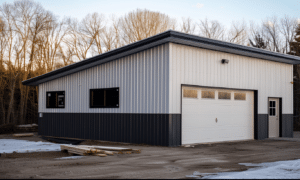
Noise and Acoustic Challenges
Our buildings can amplify noise, creating acoustic challenges in residential and commercial settings. Acoustic treatments may be needed to mitigate noise issues.
Design and Customization of Steel Buildings
Design Flexibility and Aesthetics
Steel buildings offer vast design possibilities, from sleek modern aesthetics to traditional styles. The material’s strength allows for creative architectural solutions, including large open spaces and unique rooflines.
Customization Options of Steel Buildings
Our buildings can be customized in terms of size, shape, and features. Options include various wall panels, roof styles, and door types, allowing for a highly personalized structure that meets specific needs.
Interior and Exterior Design Elements
Interior designs can incorporate steel elements like exposed beams for an industrial look or be entirely covered for a more traditional appearance. Exterior finishes range from steel panels to brick or stone veneers, providing a variety of aesthetic options.
Steel Building Materials and Components
Types of Steel Used
Different types of steel are used in construction, including structural steel for framing and cold-formed steel for lighter structures. Each type serves specific purposes in the building process, ensuring strength and stability.
Key Components
Key components of buildings include beams, columns, and panels. These elements work together to provide structural support, allowing for expansive and flexible designs that are both durable and aesthetically pleasing.
Construction Process
Planning and Design Phase
The construction of a building begins with careful planning and design, considering factors like load-bearing capacity, local building codes, and aesthetic preferences. This phase is crucial to ensure the building meets all requirements.
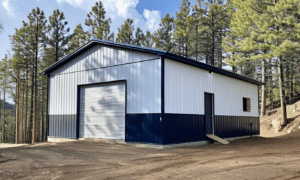
Site Preparation
Site preparation involves clearing and leveling the land, laying the foundation, and ensuring that all utilities are in place before construction begins.
Assembly and Erection Process
Steel buildings are typically prefabricated, with components manufactured off-site and then assembled on-site. This process reduces construction time and minimizes waste, ensuring a more efficient build.
Quality Control and Safety
Strict quality control measures ensure that all components meet safety and structural standards. Regular inspections are conducted throughout the construction process to ensure compliance with regulations and ensure the building’s longevity.
Steel Buildings vs. Traditional Building Materials
Steel vs. Wood
Steel is stronger and more durable than wood, offering better resistance to fire, pests, and weather. However, it may require more insulation to address thermal conductivity issues.
Steel vs. Concrete
Steel buildings are typically faster to construct than concrete structures and offer greater flexibility in design. Concrete, however, provides excellent thermal mass, contributing to energy efficiency.
Steel vs. Brick
Steel is lighter and can span larger distances without needing numerous support columns, unlike brick. However, brick offers better sound insulation and aesthetic appeal in some cases.
Steel buildings offer unmatched durability, flexibility, and sustainability across various sectors, from residential to industrial applications. As the demand for efficient, long-lasting construction continues to grow, steel buildings are increasingly becoming the preferred choice. For more information on the different types of metal buildings, explore the range of options available with Your Building Team.
Cart
Top rated products
-
-
-
-
-


